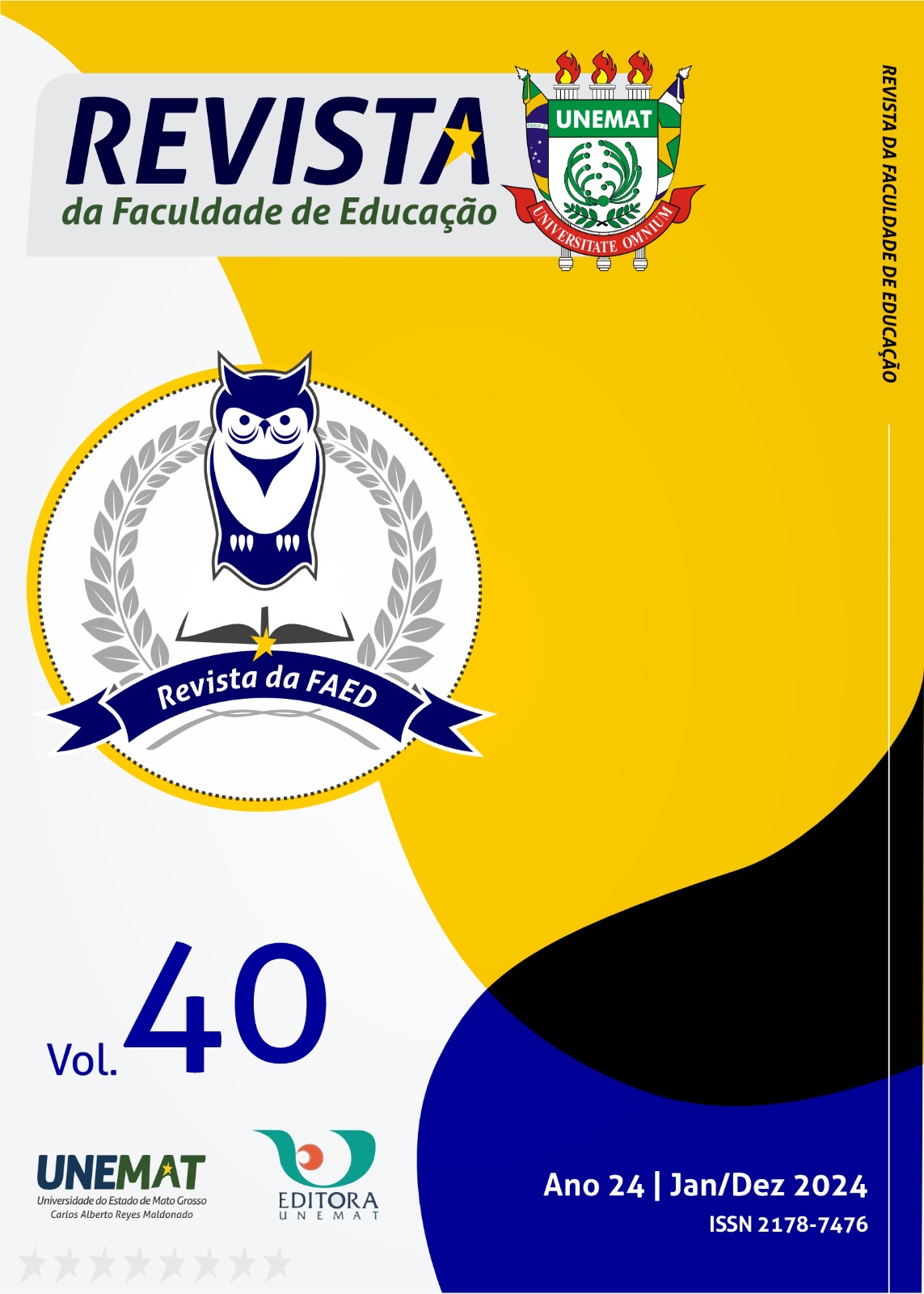PEDAGOGICAL AGROECOLOGY AND INDIGENOUS KNOWLEDGE
DOI:
https://doi.org/10.30681/faed.v40i.12932Keywords:
Indigenous Peoples, Indigenous Farms, Knowledge, Agroecology, Agroforestry SystemsAbstract
The development of agroecological work on indigenous lands in the state of Mato Grosso is a necessary social demand to guarantee the recovery of degraded areas, to produce healthy food and also to strengthen cultural practices. This text is the result of a project to implement models of Safs (farms) in the Xingu Indigenous Park, whose methodology was based on contributions from anthropology, pedagogy, biology in dialogue with indigenous knowledge and practices. For the implementation and maintenance of the Safs, with an area of 1 hectare each, three courses were held with the participation of 15 indigenous people. The courses were composed of theoretical and practical activities involving indigenous and non-indigenous knowledge about soils, plants, management and uses in food. The results obtained after five years of the project were: the expansion of farms in indigenous lands, the increase in food production, the appreciation of traditional foods and the engagement of young people in work to recover degraded areas with food production
Downloads
References
BOKS, C. Household food waste: drivers and potential intervention points for design – an extensive review. Journal of Cleaner Production, v. 151, p. 380-392, 2017.
BRANDÃO, Carlos Rodrigues. O trabalho de saber: cultura camponesa e escola rural. Porto Alegre: Sulina, 1999.
BREVES, Núbia do Socorro Pinto; MOTA, Dalva Suely Moraes; MUBARAC SOBRINHO, Roberto Sanches. Reflexões sobre as concepções de ciências e conhecimentos/saberes tradicionais indígenas dos Omágua/Kambeba. Revista Amazônica de Ensino de Ciências. ISSN: 1984-7505. Artigo 131 Revista Areté. v. 6, n. 11, p.123-136, jul-dez. Manaus, 2013.
COTTA, J. N. Revisiting Bora fallow agroforestry in the Peruvian Amazon: Enriching ethnobotanical appraisals of non-timber products through household income quantification. Agroforestry Systems, v. 91, n. 1, p. 17-36, 2017.
ENGEL, V. L. Introdução aos Sistemas Agroflorestais. Botucatu: FEPAF, 1999. 70 p.
FREIRE, Paulo. Pedagogia da autonomia: saberes necessários à pratica educativa. 12. ed. São Paulo: Paz e Terra, 1999.
GONÇALVES, Cláudia Brito Quadros. Sistemas agroflorestais biodiversos: Uma proposta para a segurança alimentar e nutricional de povos indígenas. Universidade Federal da Grande Dourados. Dourados/MS, 2021.
ISA (Instituto Socioambiental). Parque Nacional do Xingu. Povos Indígenas no Brasil. 2022. Disponível em: https://pib.socioambiental.org/pt/Povo:Xingu. Acesso em: 30 de setembro de 2024.
MALTEZ, Marcos Antônio Pereira da Fonseca, et al. Impactos ambientais e sociais causados pelas monoculturas de eucaliptos no Alto Jequitinhonha. Belo Horizonte: UFMG, 2016. Disponível em: <https://congressods.com.br/quinto/anais/gt_08/impactos%20 ambientais%20e%20sociais%20causados%20pelas%20monoculturas.pdf>. Acesso em 24 de maio de 2024.
OLIVEIRA, Roberto Cardoso de. O trabalho do antropólogo: olhar, ouvir, escrever. Revista de Antropologia. São Paulo, USP, v.39, n.1, p. 13-37, 1996.
PERALTA, A. A agroecologia kaiowá: tecnologia espiritual e bem viver, uma contribuição dos povos indígenas para a educação. MovimentAção, Dourados, v. 4, nº. 6, p. 01-19, 2017. Disponível em: http://ojs.ufgd.edu.br/index.php/movimentacao. Acesso em 16 set. 2024.
SILVA, José Afonso da. Direito Ambiental Constitucional. 4. ed. São Paulo: Malheiros, 2002.
WENDLING, Ivar. Produção de mudas de espécies lenhosas [recurso eletrônico / Ivar Wendling, Leonardo Ferreira Dutra, Fernando Grossi. Dados eletrônicos. – Colombo: Embrapa Florestas, 2006.
Downloads
Published
Issue
Section
License
Copyright (c) 2024 Rosane Duarte Rosa Seluchinesk, Adriano, Rosalvo Duarte Rosa

This work is licensed under a Creative Commons Attribution-NonCommercial 4.0 International License.
Licença CC-BY-NC
"Revista da Faculdade de Educação adota a licença Creative Commons BY-NC do tipo "Atribuição Não Comercial". Essa licença permite, exceto onde está identificado, que o usuário final remixe, adapte e crie a partir do seu trabalho para fins não comerciais, sob a condição de atribuir o devido crédito e da forma especificada pelo autor ou licenciante".





















